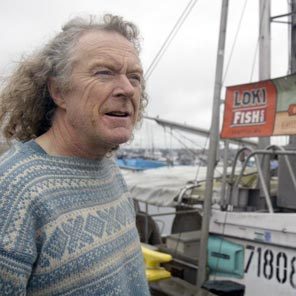
Posted by Rebekah Denn, The Seattle Times
Is it safe to eat fish from the Pacific Ocean in the wake of the Fukushima nuclear disaster? The consensus since the 2011 power plant failure has been a yes, but Seattle’s Loki Fish Co. found customers remained concerned.
The fishing company, a local institution, went on to do its own testing for radiation levels in its fish, and shared the laboratory reports online. (The short version: The fish were fine.)
“We were getting so much blowback from customers that have just been reading incredibly paranoid stuff on the Internet,” said Pete Knutson, co-founder of the family-owned business. Beyond some of the “off the charts” fears, though, he understands why people would be concerned, and he’s always interested in knowing how pure his own products are. The decision: “Let’s just do the testing and let the chips fall where they may.”
It helped his decision that he could find no specifics from public agencies like the FDA, which simply says on its website that “to date, FDA has no evidence that radionuclides from the Fukushima incident are present in the U.S. food supply at levels that would pose a public health concern.”
After the $1,200 endeavor, Loki’s web page reported that “All seven stocks of salmon were tested for the radionuclides associated with the nuclear plant failures in Japan: Cesium 134, Cesium 137, and Iodine 131. Of the seven samples, five did not register detectable levels of radionuclides. Two of the samples registered at trace levels – Alaskan Keta at 1.4Bq/kg for Cesium 137, and Alaskan Pink at 1.2Bq/kg for Cesium 134. There were no detectable levels of iodine-131 in any samples.
“To put those numbers in perspective, the critical limit set by the FDA for either Cesium-134 or Cesium-137 is 370 Bq/kg, far above the amount found in Loki’s Alaskan Keta and Pink salmon.”
The full lab testing reports can also be downloaded from the page. (There was also a certain amount of both natural and man-made radioactivity in the ocean pre-Fukushima.)
Is that enough to ease the minds of diners? One customer on the Loki Facebook page wrote “A. it’s only January. B. keep testing.” Another warned that “it would be unrealistic to tell people afraid of the radiation on the basis of one test that the fish is safe forever.”
Knutson said that “I tell people, this isn’t conclusive, it’s only 7 samples, but it’s a random sampling,” not one that could have been gamed in any way. At the least, “it makes me feel better.”
Bellingham-based Vital Choice Wild Seafood & Organics, which sells fish online, has had fish tested several times with similar results. Knutson wasn’t aware of anyone else doing so, but thinks such moves might be more common in the future. His son, Dylan, faced regular queries about the radiation issue at Loki’s farmers market tables, though those customers are “a pretty motivated group that’s interested in chain of custody,” and perhaps more likely to raise the issue.
People are “not fully confident the government’s telling the truth,” or that corporations are telling the truth, he said. Sharing such direct data from producer to customer, he said, might just be “where the future of food is.”
Updated Jan. 20 to reflect additional Vital Choice tests.
